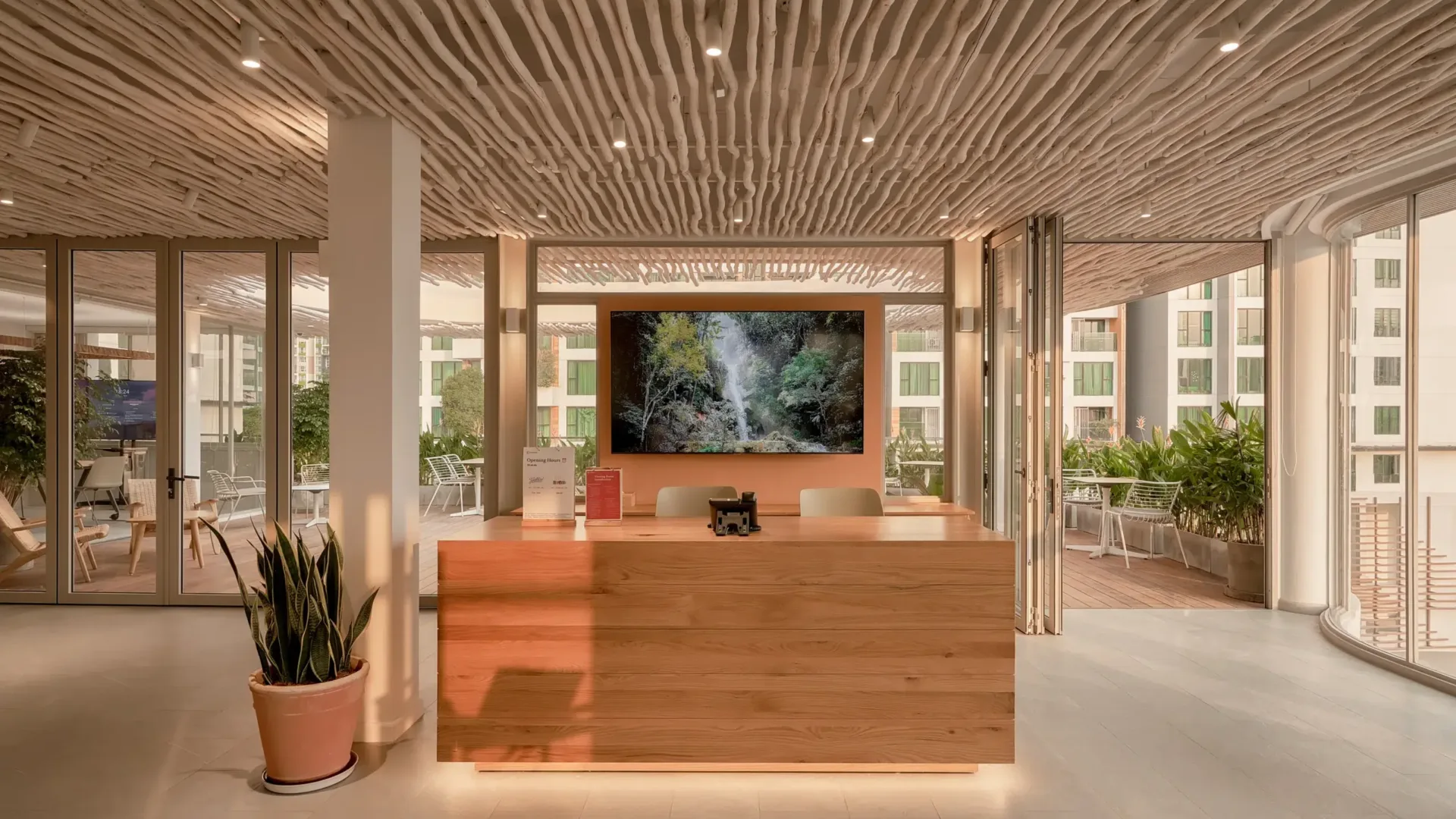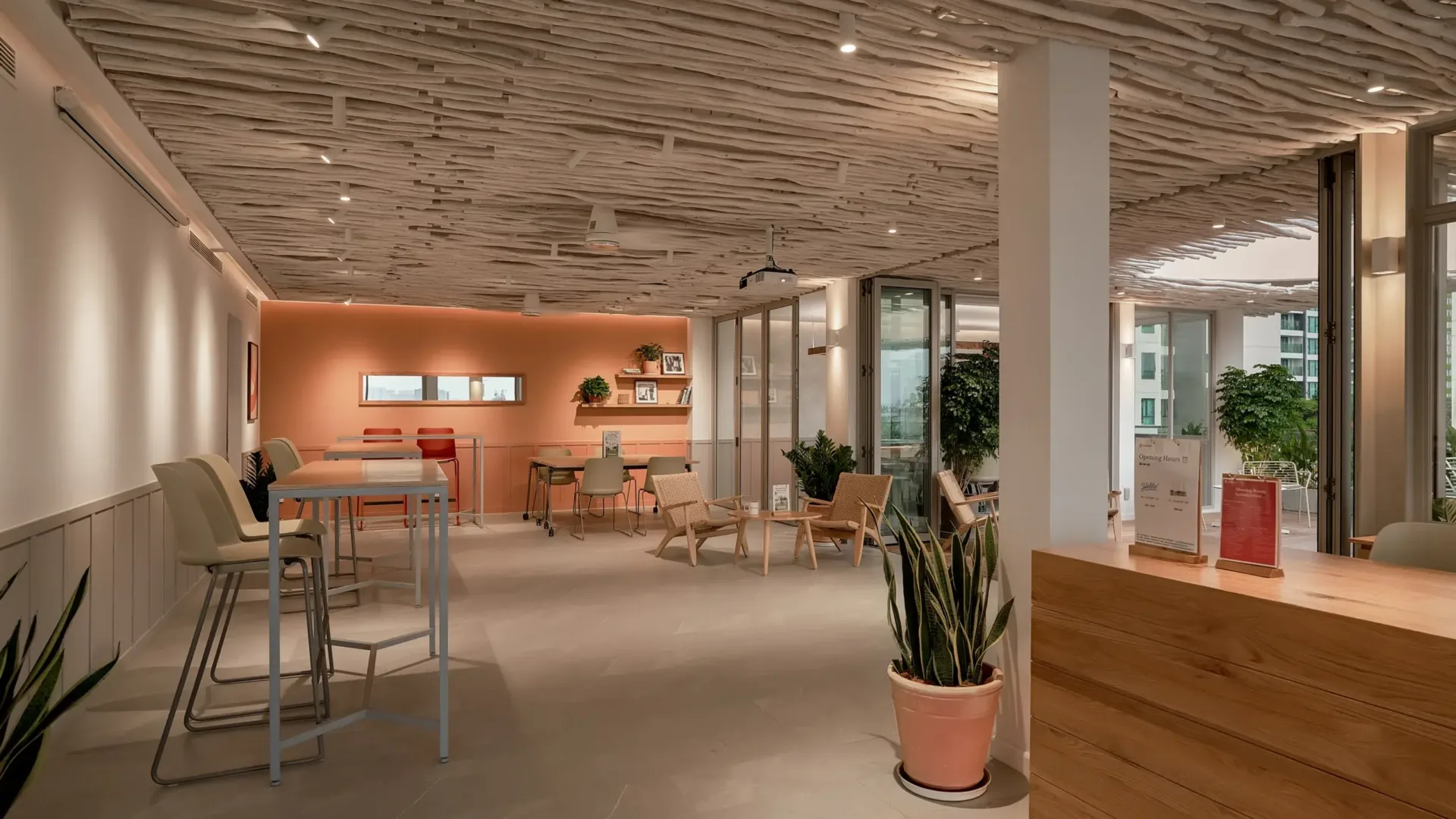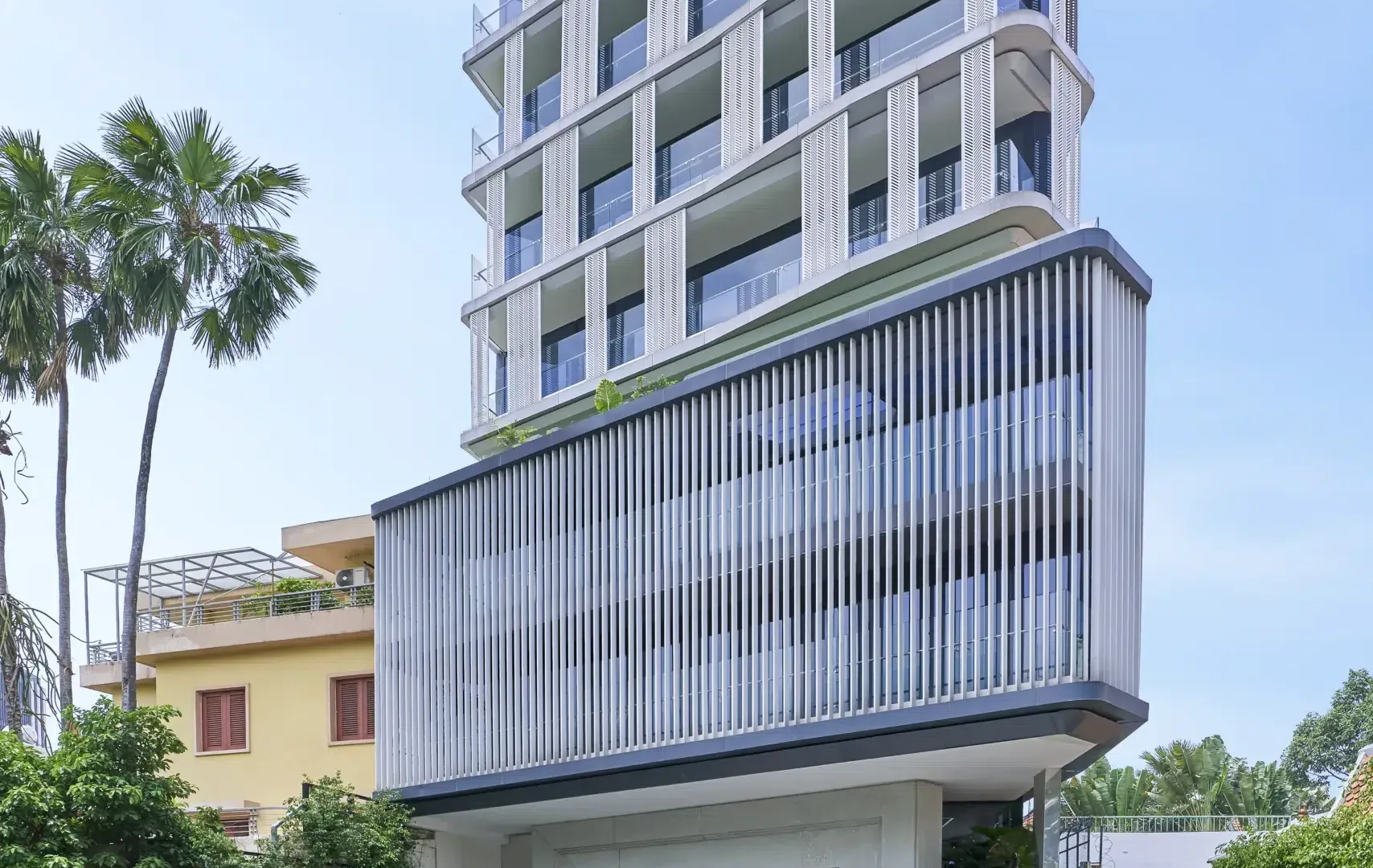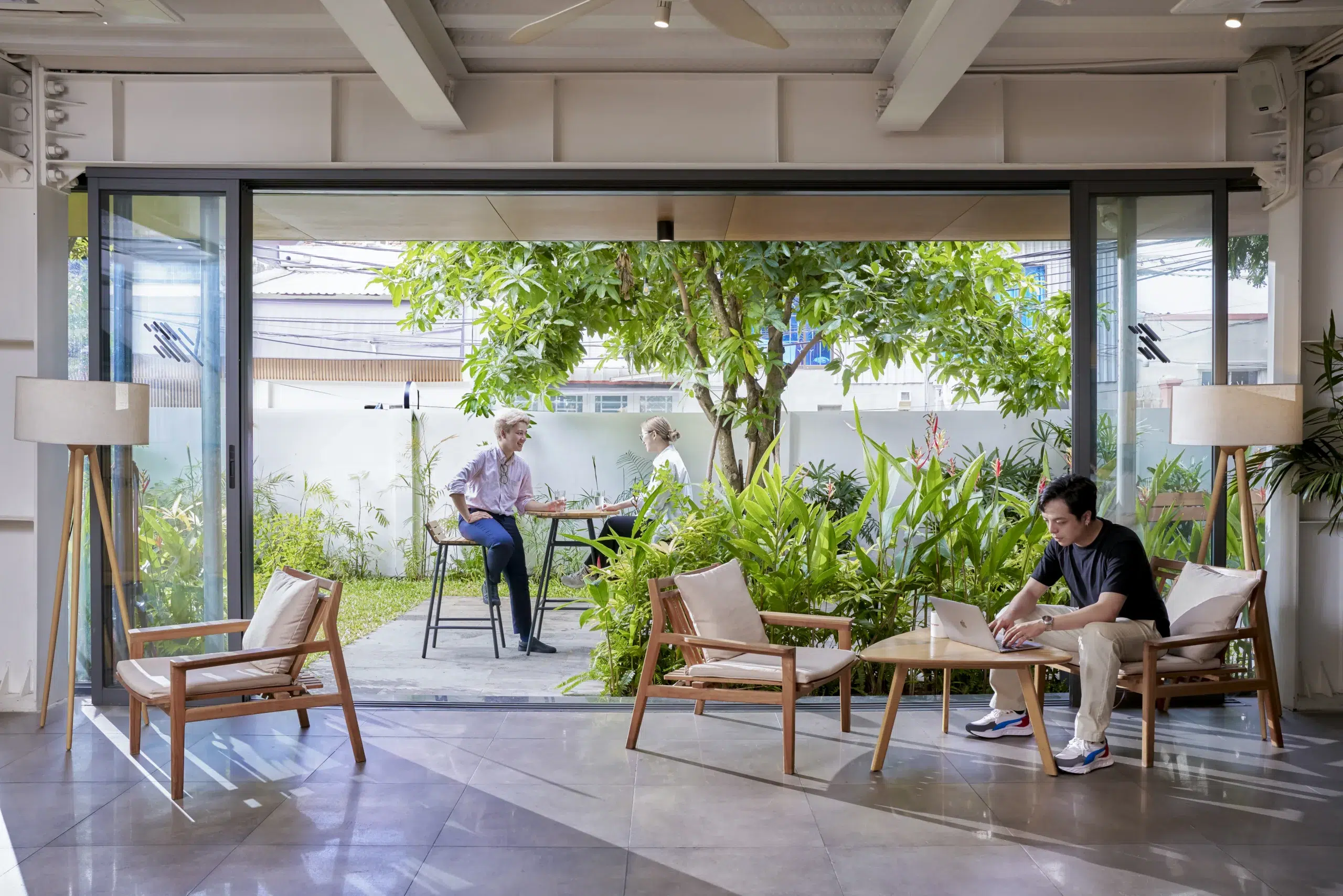Vietnam’s economy is projected to grow 6.5-7% in 2026, making it one of Southeast Asia’s most attractive markets for foreign investment. For international companies testing the waters before committing to full operations, establishing a representative office in Vietnam offers a strategic entry point with lower risks and faster setup. But here’s what most guides miss: securing the license is just half the equation. Your physical workspace strategy – location, design, and operational flexibility – can make or break your market entry success.

With Vietnam’s 2026 digital business framework introducing new compliance requirements and HCMC’s Grade A office occupancy exceeding 85%, the companies winning in this market are those treating workspace selection as strategically as licensing. This guide walks you through both the regulatory pathway and the workspace decisions that determine whether your rep office becomes a launchpad or a liability.
Before starting the procedure, you need to clearly understand what the representative office model is and why it is suitable for your strategy to penetrate the Vietnamese market.

A Vietnam representative office serves as a liaison hub for foreign companies seeking market presence without establishing a full legal entity. Under Vietnamese law, rep offices can conduct market research, promote parent company services, monitor project implementation, and facilitate business connections between the parent company and Vietnamese partners. Think of it as your market intelligence and relationship-building outpost, not your revenue-generating arm.
According to the Commercial Law No. 36/2003/QH11, in Vietnam, rep offices cannot engage in direct commercial activities, sign contracts on behalf of the parent company, or generate invoices. This limitation is crucial—violating these restrictions can trigger permanent establishment status, exposing your company to corporate income tax obligations meant for full entities.
The “how to set up a representative office in Vietnam” question often arises when companies compare entity options. Representative offices offer distinct advantages: faster setup (typically 6-8 weeks versus 3-4 months for LLCs), lower initial capital requirements (no minimum registered capital needed), and simplified compliance obligations. For companies wanting to understand Vietnamese business culture, identify potential partners, and assess market viability before committing significant resources, rep offices provide the perfect testing ground.
Compared to branch offices, rep offices face fewer restrictions on activities scope and require less documentation. Unlike LLCs, you avoid complex corporate governance requirements and can maintain tighter operational control from headquarters. This model works exceptionally well for service companies, manufacturers seeking local suppliers, and consulting firms building regional networks.
Legal compliance is a mandatory step to obtain a license to operate. Below are the requirements and procedures to be aware of.
Your parent company must meet specific criteria to establish a representative office in Vietnam. Pursuant to Article 7, Clause 1, Decree No. 07/2016/ND-CP, the foreign entity must have operated for at least one year in its home country with verifiable business activities. This requirement ensures only established companies, not startups, enter through the rep office route.

The parent company must demonstrate financial stability through audited financial statements and maintain good standing in its jurisdiction of incorporation. Companies facing bankruptcy proceedings, legal disputes, or regulatory violations may face application rejection.
The complete checklist from InCorp Vietnam includes notarized and consularized documents proving the parent company’s legal existence, financial capacity, and business scope. Key documents include the certificate of incorporation, the board resolution approving the Vietnam rep office establishment, audited financial statements for the past two years, and the parent company business registration certificate.
You’ll also need a lease agreement or office address commitment letter—this is where workspace strategy intersects with licensing. The address must be genuine and verifiable, as authorities conduct site inspections. Many companies stumble here by securing temporary addresses that later prove inadequate for actual operations.
All foreign-language documents require a certified Vietnamese translation. Notarization and legalization processes vary by country, typically involving authentication by the relevant embassy or consulate. Budget 4-6 weeks for document preparation before filing.
Applications route through the provincial Department of Planning and Investment (DPI), where you’ll establish operations. Vietnam Briefing notes that the Vietnam rep office requirements 2026 now include digital submission capabilities in major cities, streamlining the process but requiring familiarity with Vietnam’s new digital business registration platform.
Representative office licenses are valid for five years, renewable with similar documentation. The license specifies permitted activities, chief representative details, and operational address. Any changes require amendment applications, reinforcing the importance of getting your initial setup right.
Once licensed, the representative office remains subject to regular legal and tax obligations.
Once licensed, the next steps are critical. Within 30 days, complete tax registration with the local tax authority, obtaining a tax identification number essential for all official transactions. Open a foreign currency bank account—most international banks in Vietnam offer specialized accounts for rep offices.
Register your company seal (con dấu), which holds legal authority equivalent to signatures in Western business culture. All official documents require seal imprinting. The chief representative must register for personal income tax, as their Vietnamese-sourced salary faces local taxation.
Annual obligations include submitting financial reports to the licensing authority by March 31, detailing operational expenses and activities. Unlike trading entities, rep offices report expenses rather than revenue, but accuracy matters. Tax authorities scrutinize these reports for signs of impermissible commercial activity.
The line between permitted liaison activities and prohibited commercial operations is blurrier than you might expect. Even seemingly innocent activities—signing contracts “on behalf of” the parent, negotiating commercial terms directly, or handling payments—can trigger permanent establishment status.
Permanent establishment classification subjects your operations to corporate income tax (20%), retroactive assessments, and potential penalties. The safeguard: maintain clear boundaries. Let your rep office introduce parties, gather information, and coordinate—but keep contract execution and commercial negotiations at the parent company level.
Workspace is more than just where desks and chairs are placed — it impacts branding, employee experience, and operational capabilities.

Your office space Vietnam representative office location sends immediate signals about your market seriousness and accessibility. Ho Chi Minh City dominates as the commercial hub, hosting 60% of foreign representative offices. Districts 1, 3, and Binh Thanh offer premium positioning with proximity to government offices, banking centers, and business communities. Hanoi serves companies focused on government relations, northern industrial zones, or regional headquarters functions.
Consider your industry ecosystem. Tech companies cluster around District 2’s innovation hubs and Binh Thanh’s emerging startup corridors. Manufacturing-focused rep offices benefit from locations near industrial parks in Binh Duong or Dong Nai, while maintaining HCMC presence for client meetings. Financial services and consulting firms prioritize CBD locations in District 1 for prestige and convenience.
The workspace model you choose impacts timeline, budget, and operational agility. Here’s the reality most guides overlook:
Criteria | Traditional Lease | Flexible Office |
Setup Timeline | 4-6 months (search, negotiate, fit-out) | 2-4 weeks (move-in ready) |
Capital Investment | $30K-80K (fit-out, furniture, IT) | Minimal (included in rent) |
Lease Commitment | 3-5 years fixed | Monthly to annual flexibility |
Address for License | Must secure before filing | Immediate confirmation available |
Employer Brand Impact | Depends on fit-out budget | Professional from day one |
Scalability | Locked into square footage | Expand/contract as needed |
Monthly Cost Range (10 pax) | $2,500-4,500 base + utilities + management | $3,500-6,000 all-inclusive |
Flexible office Vietnam for foreign companies solves multiple challenges simultaneously. Your licensing application needs a confirmed address—flexible office providers issue commitment letters immediately. While waiting for license approval (6-8 weeks minimum), you’re not burning cash on empty traditional spaces. Once licensed, you walk into a professionally designed, fully equipped workspace that signals credibility to potential partners and recruits local talent effectively.
Representative offices compete for local talent against established companies offering premium work environments. Your office becomes your employer brand made tangible. Natural light, ergonomic furniture, meeting room access, and community amenities aren’t luxuries—they’re baseline expectations for the skilled professionals you need to hire.
Hybrid-ready design matters even for small rep office teams. As you scale from an initial 3-5 staff to 15-20 people testing market traction, flexible spaces accommodate growth without relocation disruption. Community aspects—networking events, cross-company knowledge sharing—accelerate your market learning curve.
Understanding time and costs will help you plan effective implementation and avoid unexpected costs.
From decision to operational rep office, expect 3-4 months minimum. Break it down:
Companies choosing flexible office Vietnam solutions compress the critical path by eliminating fit-out time. Your team can start operations within days of receiving the license, capturing market opportunities competitors miss while they wait for contractors.
Licensing costs for a representative office in Vietnam range from $3,000-$7,000, covering government fees, documentation, legal consulting, and translation. An additional $2,000-$4,000 is needed for items like company seals and initial accounting setup.
Workspace costs vary significantly; traditional leases in HCMC Grade A buildings are $35-$55 per square meter monthly, plus one-time fit-out costs ($300-$500/sqm), 3-6 months advance deposit, and monthly utilities ($150-$300), cleaning ($200-$400), and building management fees ($4-8/sqm monthly).
Flexible office solutions can cost 20-30% more on a monthly basis than bare traditional leases – but deliver 40-50% savings on total first-year occupancy cost when factoring in eliminated fit-out, deposits, and operational overhead. For rep offices with 12-24-month market testing horizons, the math strongly favors flexibility.
Build 15-20% contingency for unexpected costs: additional document authentication, accelerated processing fees if timelines shift, or initial months’ operating expenses exceeding projections as you calibrate staffing needs.
Many businesses make mistakes when setting up a representative office — here are common mistakes and how to avoid them.
The most frequent mistake: drifting into commercial activities because “just this one deal” seems harmless. Don’t. Structure operations so that all contract negotiations and signing happen at the parent company level. Your rep office coordinates, facilitates, and reports—never transacts. Document this clearly in internal protocols and the chief representative’s responsibilities.
Choosing the cheapest office space available damages your market positioning before you’ve begun. In Vietnamese business culture, where first impressions and status signaling matter enormously, a shabby office suggests financial instability or lack of commitment. If budget constraints are real, opt for a smaller space in a premium building over a larger space in a mediocre location.
APLawJapan reports that Vietnam’s 2026 digital signature implementation will require digital authentication for government submissions, contracts, and compliance filings. International companies unfamiliar with Vietnam’s digital infrastructure face learning curves. Partner with service providers experienced in the transition—fumbling digital submissions wastes time and risks non-compliance penalties.
Ready to establish your representative office in Vietnam? Follow this sequence:
1. Confirm the rep office that suits your objectives (market research, liaison activities vs. direct operations)
2. Prepare parent company documentation (certificates, financial statements, board resolutions)
3. Shortlist target locations (HCM vs Hanoi, specific districts based on industry)
4. Compare workspace options (traditional lease vs flexible office—visit multiple spaces)
5. Secure office address commitment (essential for license application)
6. Engage legal counsel (license application preparation and submission)
7. Submit license application to provincial DPI (begin 6-8 week waiting period)
8. Complete post-license registrations (tax, seal, bank account within 30 days.
9. Set up workspace and onboard staff (faster with flexible office solutions)
10. Establish compliance calendar (annual reporting, chief representative PIT, document renewals)

Setting up a representative office in Vietnam in 2026 requires navigating regulatory requirements while making smart workspace decisions that support your market development goals.
With 10 years of experience, Dreamplex has helped hundreds of international companies set up and operate their Vietnam offices smoothly, efficiently, and cost-effectively. Our flexible workspaces blend global standards with local expertise – so your team can focus on growth from day one.
Book a tour of Dreamplex spaces today and discover how we can support your growth journey. Or learn more about our flexible office solutions and workplace design philosophy.
Get a quote and explore this month promotions at:
Dreamplex creates “A Better Day at Work” by perfectly meeting the needs of rapidly growing companies that understand their young employees expect more from their workplace.
With professional, flexible workspaces, top-notch hospitality services, and a collaborative community for mutual growth, Dreamplex helps businesses work productively while optimizing operational costs.
Join the community with tech experts and startup founders from TIKI, Zuhlke Vietnam, GFT Group, Vietcetera, at Dreamplex’s flexible office spaces in Ho Chi Minh City and Hanoi.
WE CREATE BETTER DAYS AT WORK.